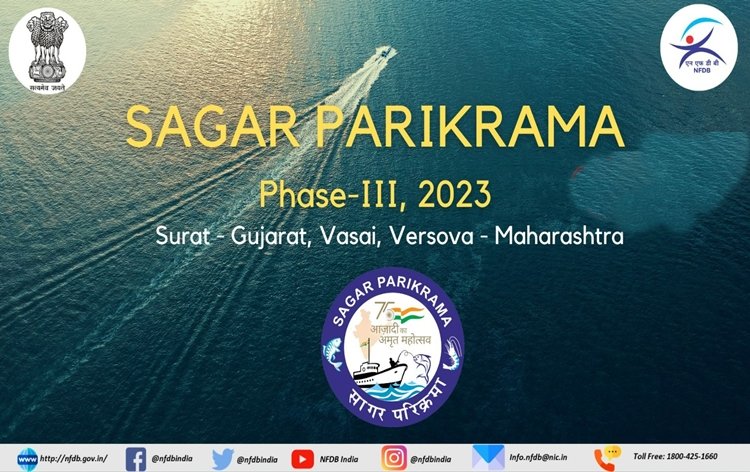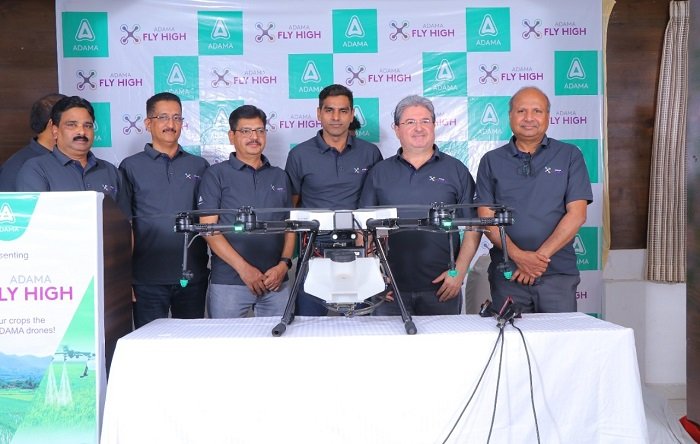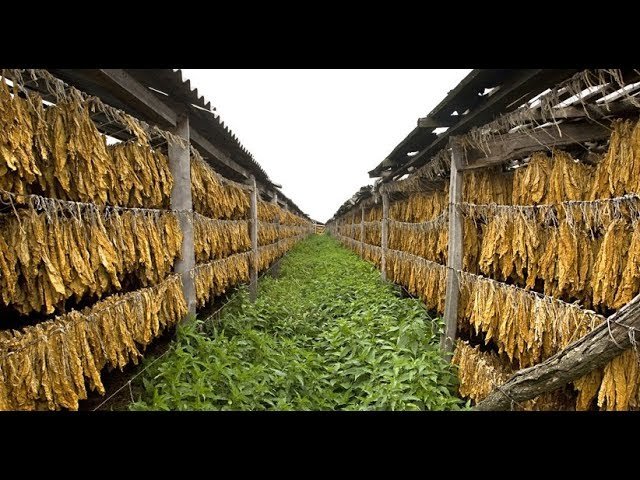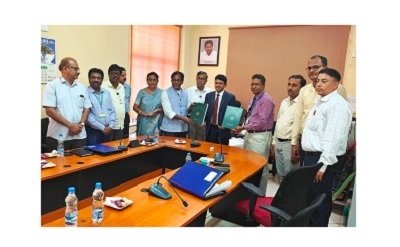Parshottam Rupala launches Sagar Parikrama phase-III from Hazira Port
The main objectives of Sagar Parikrama are to disseminate information on various fisheries-related schemes and programs being implemented by the government
Parshottam Rupala, Union Minister of Fisheries, Animal Husbandry and Dairying, starts the Sagar Parikrama Phase-III from Hazira Port, Gujarat, and proceeds towards the coastal line of Maharashtra at Satpati, Vasai, Versova, and Parikrama will end at Sasson Dock, Mumbai.
The main objectives of ‘Sagar Parikrama’ are to facilitate interaction with fishermen, coastal communities and stakeholders so as to disseminate information on various fisheries-related schemes and programs being implemented by the Government; demonstrate solidarity with all fisher folk, fish farmers and concerned stakeholder as a spirit of Aatmanirbhar Bharat, to promote responsible fisheries with focus on the sustainable balance between the utilisation of marine fisheries resources for food security of nation and livelihoods of coastal fisher communities and protection of marine ecosystems.
The journey of Sagar Parikrama focuses on the sustainable balance between the utilisation of marine fisheries resources for the food security of the nation and livelihoods of coastal fisher communities and the protection of marine ecosystems, to bridge the gaps of fisher communities, and their expectations, development of fishing villages, upgradation and creation of infrastructure such as fishing harbours & landing centres to ensure sustainable and responsible development through an ecosystem approach.
The Sagar Parikrama program is celebrated in all coastal States/UTs through a pre-decided sea route down right from Gujarat, Diu, Maharashtra, Goa, Karnataka, Kerala, Tamil Nadu, Andhra Pradesh, Odisha, West Bengal, Andaman & Nicobar, and Lakshadweep Islands to have interaction program with fishermen, fisher communities and stakeholders in these locations to know the problems of Coastal Fisher folk. A holistic approach has been adopted to improve the quality of life and economic well-being of fishers and fishermen in rural areas and create more livelihood opportunities.
The main objectives of Sagar Parikrama are










